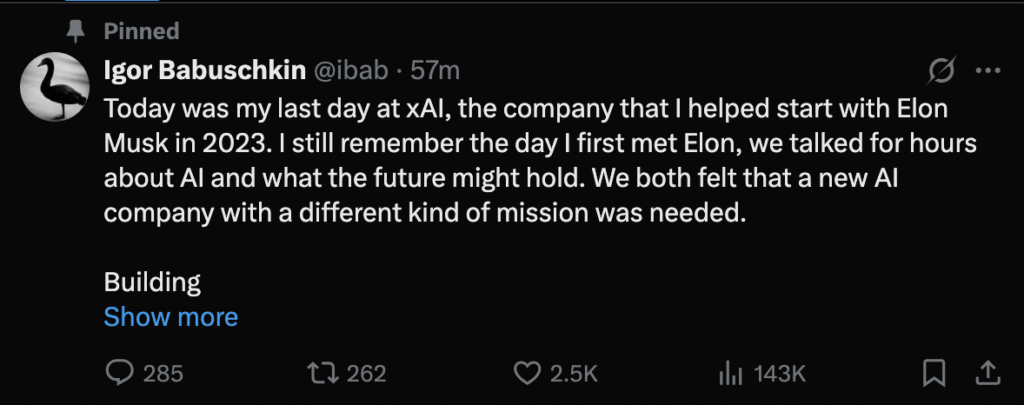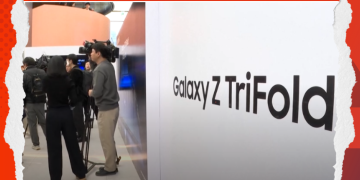Igor Babuschkin, one of the founding engineers behind Elon Musk’s AI company xAI, has stepped down to launch Babuschkin Ventures, a fund focused on advancing AI safety and supporting start-ups in agentic systems.

Babuschkin co-founded xAI in 2023 after meeting Musk and aligning on the need for a new AI company with a mission to benefit humanity. A former particle-physics researcher at CERN, he had grown convinced that superintelligence could hold the key to unlocking scientific problems such as quantum gravity or the Riemann hypothesis.
Building xAI at Record Pace
From its earliest days, Babuschkin was hands-on in developing xAI’s infrastructure, product, and applied AI teams. He helped oversee the construction of the Memphis supercluster in just 120 days, a timeline industry veterans said was impossible. The final days before launch saw the engineering team, alongside Musk, troubleshooting network failures on-site until a single BIOS setting fixed the issue. The first successful training run, completed in the early hours of the morning, became emblematic of xAI’s high-pressure, high-speed culture.
Under his technical leadership, xAI shipped frontier models faster than any rival, catching up to the market leaders in record time. He credits the achievement to the “diehard grit” of a small, committed team.
Pivot to AI Safety
Announcing his exit, Babuschkin said the next generation of AI systems will require urgent, rigorous safety research as they become increasingly capable over longer time horizons. Babuschkin Ventures will back research initiatives and start-ups that align advanced AI with human values while exploring breakthroughs at the intersection of AI and science.

The decision was shaped by personal history. His parents left Russia after the collapse of the USSR to secure a better future for their children, and he has carried their belief in courage, compassion, and curiosity into his work. A recent conversation with Max Tegmark, founder of the Future of Life Institute, reinforced his commitment to ensuring that AI is safe for the next generation.
Regional Relevance
The move comes as MENA governments and sovereign funds increase AI investments, from large-scale compute clusters to AI governance frameworks. Babuschkin’s shift mirrors a growing trend of frontier-AI leaders stepping into roles that influence not just capability, but societal trajectory, a debate now playing out across Gulf policy circles as the region positions itself as a hub for advanced AI.














